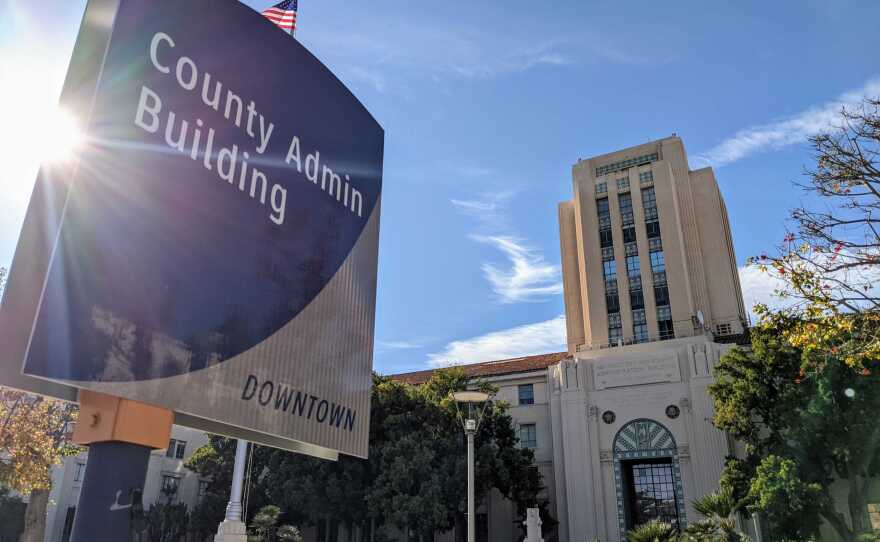The Board of Supervisors unanimously voted Tuesday to approve a $7.2 billion fiscal year 2021-22 spending plan for San Diego County.
Including additional requests by supervisors or department leaders since it was first unveiled in May, the budget includes roughly $2.7 billion for health and human services, $2.2 billion for public safety, $1.5 billion for general government and $600 million for environmental programs.
Along with the traditional county services, the county budgeted money for programs aimed at reducing homelessness, increasing economic opportunity, environmental protection, governmental transparency and reforming the justice system.
"Congratulations everyone on job well done on passing the budget," board Chairman Nathan Fletcher said before adjourning the meeting.
Chief Administrative Officer Helen Robbins-Meyer said the official budget is "a culmination of tremendous effort" by the Board of Supervisors, county staff and the public.
"We spent the last six months listening to each other," Robbins- Meyer said. "This is a budget that reflects the needs of all of our residents while maintaining a prudent fiscal position."
Robbins-Meyer added that the county is "in a moment in time that may not ever occur again," as the 2021-22 budget represents a $700 million increase and 1,000 new staffing positions.
In August 2020, the board passed a $6.5 billion budget for fiscal year 2020-21, after a two-month delay caused by the COVID-19 pandemic.
Tuesday's vote followed month of public hearings. Budget highlights include:
• increased medical and behavioral health services in county jails with 160 new employees and $24.865 million in funding;
• more staffing and funding to convert three remote fire stations in San Diego County Fire, adding three firefighters;
• establishing an Office of Labor Standards and Enforcement with five full-time employees and $1.1 million in funding;
• establishment of the Office of Immigrant and Refugee Affairs with five full-time employees and $2 million in funding;
• the construction for phases two and three of the county's new Youth Transition Campus with $75 million in funding;
• a new behavioral health operations and data reporting program with 56 full-time employees and $8.65 million in funding.
• $10 million to design and build the Behavioral Health Crisis Hub in Hillcrest;
• $12.4 million for Mobile Crisis Response Teams;
• $2.4 million toward establishment of a Department of Homeless Solutions and Equitable Communities with 207 full-time employees, many of whom will be transferred from other departments;
• 20 new social workers to support development of all school-age foster children with $3.8 million in funding; and
• $400,000 for a doula pilot program to support Black maternal and infant health.
Supervisor Nora Vargas said that while the spending plan won't solve all the long-standing disparities that communities face, she's confident that it sets the county on the right path.
Vargas, also the board vice-chair, thanked the public for their input to create this year's budget.
"I come from your world (of) waiting many hours to make sure our voices were heard," she said.






